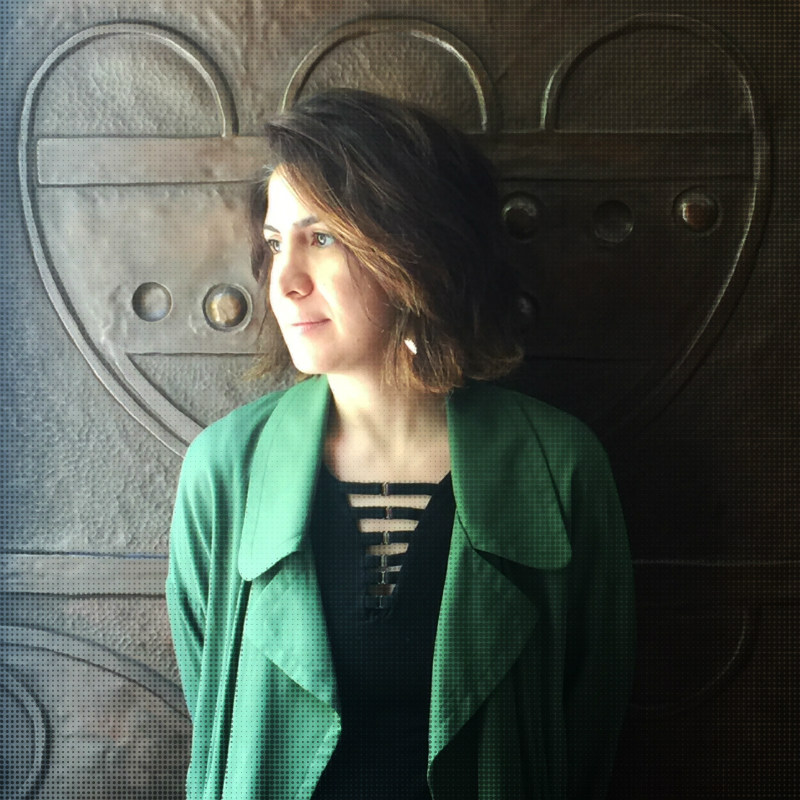Podcasts are often an excellent way to learn a language, offering insight into the culture and everyday lives of the people behind the stories being shared. In Turkey, finding quality, engaging podcasts can prove challenging for a foreigner, as the popularity of the medium is still very much in development. Onbironsekiz is a project that provides a much needed outlet for expression for storytellers, while also contributing a professional level of production and distribution essential in continuing to grow the format. With a consistently expanding variety of programs, there’s plenty of experiences to be shared.
Berna Kahraman is one of the showrunners behind the much-welcomed project. With an undoubted passion for podcasts, Berna is involved in nearly ever aspect of the production process behind all episodes featured on the site. Her enthusiasm shines through in helping these stories be shared, as well as in her firm belief that there is a diverse podcast community worth fostering in Turkey. She was kind enough to take some time to speak with Yabangee about the state of podcasting in the country, what it’s like behind the scenes, and what we can expect from the project moving forward. She also provided a few recommendations worth checking out.

Would you tell us a bit about yourself and what drew you to the world of podcasts?
I grew up in southern Turkey, in an ancient city called Tarsus. Both mom and dad belonged to a community which values story telling as a means to maintain culture and to express and individualize the self through the telling and re-telling of one’s story. And, I think, oral culture was important to them in creating shared memories, and in doing so, solidifying the ties within the community, especially since they faced persecution due to their religious beliefs throughout history and had to flee in the 1800s to now what is part of Turkey.
I lived with my grandmother in my early childhood who used to tell me stories from different times and lands with characters such as a mouse which swallows a whole family after befriending them, one-eyed giants who slept with their one eye open, and birds of immense beauty which are held in captivity.
So, listening was never hard for me. I delved into the world of podcasts when I discovered This American Life (TAL) during my doctoral studies in the US. I was addicted immediately.
When I returned to Turkey five years ago for good, my partner Onur Akmehmet and I saw this big gap in the world of smart entertainment content and decided to bring TAL style of podcasting here, in the Turkish language.
Generally speaking, what’s podcast culture like here in Turkey? How has it developed in recent years?
Podcasts started as recordings of radio programs that were shared in downloadable audio formats on the web. The production of podcasts solely for use on the web is a relatively new notion. Comedy does well. But more serious work did not arrive before us. Hence, it is still hard to speak of a podcast culture in Turkey.
Could you tell us about Onbironsekiz? What’s your mission?
Our mission is to bring the odd (wo)man into the picture. Turkey is an incredibly pluralistic society in its essence. We find unique individuals from all walks of life and put the microphone on them. Podcasts are the freest form of expression. Also, in comparison to other media forms they are more intimate.

You say that it is possible to share stories with Onbironsekiz. How does that work?
In fact, this is one thing that separates us from our international peers. People can upload their stories in audio form on our website in a few simple steps. We accept recordings made with a smart phone, a computer, or any other simple recording device. Our only criteria are for the person(s) to have a good story and to tell it in a compelling way, in a clean audio recording. Then, leave the rest to us.
What is your role in the project? What podcasts do you work on?
We are a team of five and I oversee every stage of the production process from deciding which stories to release, to writing the scripts for the programs and editing. So, you may say that I have a hand in almost everything that’s been produced by Onbironsekiz.
What is the current state of the project? What’s it like behind the scenes at Onbironsekiz as the project grows?
We currently have over sixty episodes which can be accessed streaming on our website, www.onbironsekiz.com. The shows can also be downloaded to your smart phones or computers in which case you have to become a member, which is a simple process that only requires an e-mail address. Our most popular shows have reached more than thirty thousand in listenership; however, please keep in mind that podcasts are still very much unknown in Turkey. So, we try to promote the form as well as the content.

What are some of your favorite or most popular podcasts?
My favorites are the ones where the storyteller speaks with candor. That’s what we aim for; to bring out the genuine story. One of my all-time favorites is the show with Şükran Moral, an internationally renowned contemporary artist. She has a unique eye for transforming conservatism into reactionary art.
Our most popular show is called Bir Apaçi Masalı, the story of a young man who travelled the world and over time became a streetwise literary hero.
You mentioned in correspondence with us that you think podcasts are a great way for foreigners to improve their Turkish. Do you think it has advantages over other forms of media? Are there any particular ones you’d recommend for those at an intermediate level?
It is not a surprise to anyone if we say that the increasing visual nature of media exposure downplays the power of the spoken word. Word becomes an accessory as opposed to the main vehicle. Especially when you are new to a language it helps to be away from the sensory images. That’s what podcasts do. It helps you concentrate on the real thing.
Onbironsekiz podcasts are especially helpful in this regard since we put a lot of emphasis on the recordings of real individuals rather than making our podcasts host driven. Foreigners get exposed to how different individuals use language to express themselves. A wide range of experiences emerges from apt use of swear words to nuances in expression and sometimes hiding emotions. One of our episodes is called “Gurbetçiler”, for example, three expatriates from Iran, Netherlands, and Bulgaria talking about their “Turkish Experience”. That’s a good start because of the subject matter!

Are there any Turkish equivalent podcasts like ‘Serial’ or ‘This American Life’ that have entered mainstream culture, even perhaps to a lesser degree?
The answer in a nutshell is “No”. We are always on the lookout for good stories. And as I said, TAL has been an important inspiration. Investigative journalism is in an existential crisis all over the world, and, on top of that, the restrictive and oppressive atmosphere in Turkey does not help. However, podcasts just as Serial have innovated what investigative journalism is. Truth in capital letters emerges from putting on the headphones and listening to a real story for 25 minutes.
Any future projects in the works that we should be listening for?
We recently produced a mini documentary series called Taboo Crashers which can be accessed on our YouTube channel. We bring forward individuals who think outside the box and create space for others. These mini-docs have closed captions in English. We are currently producing Sesli Kelimeler, which include animated versions of short stories that we derive from our podcasts. These also can be accessed on our YouTube channel, Onbironsekiz.
—
For more information, be sure to visit the official Onbironsekiz page. You can also follow them on Facebook, Twitter, Instagram, and Youtube.
Images courtesy of Berna Kahraman.









